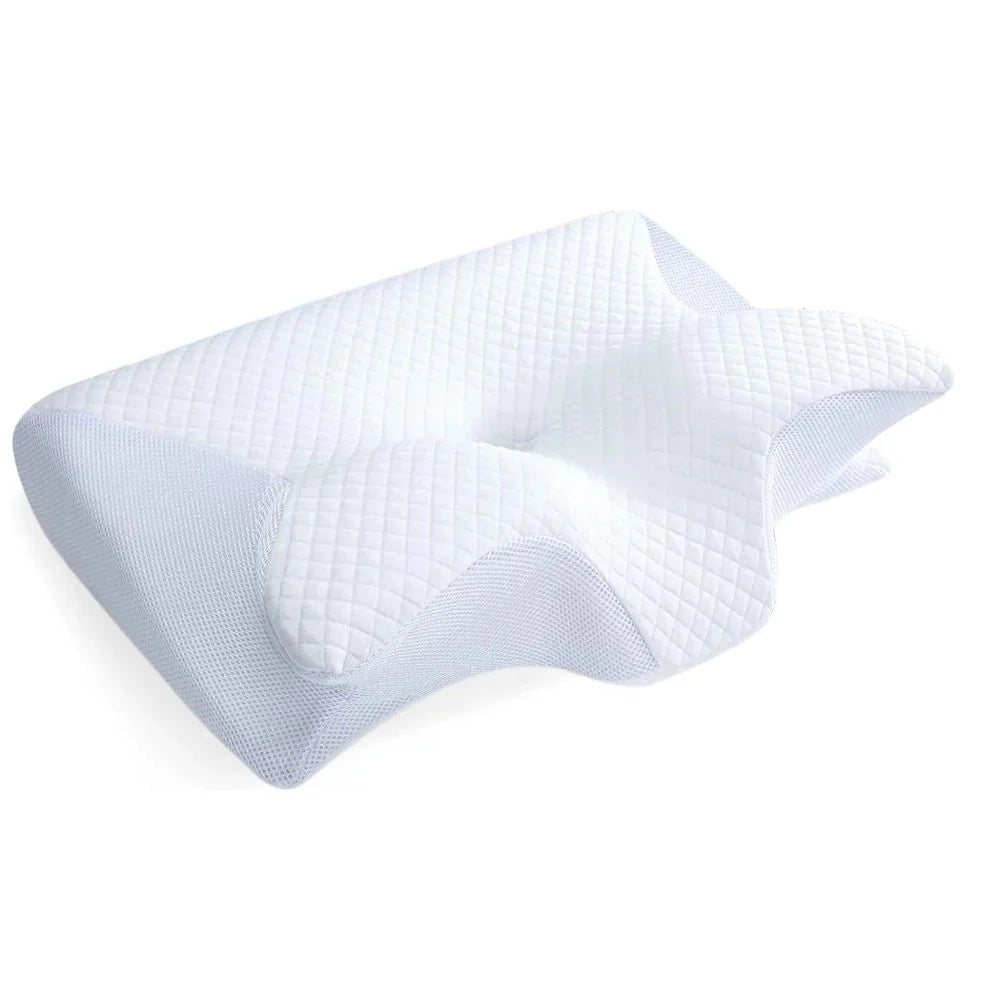
Do Your Pillow Choices Affect Your Neck? Here's What Science Says
Are you particular about your pillow? If not, maybe it's time to reconsider. Studies suggest that your pillow choice can significantly influence how your neck is positioned during sleep, which in turn affects your spinal health and overall comfort. If you're like most people, you probably haven't thought much about the biomechanics behind your pillow and neck alignment—but it's worth exploring. Let's dive into a fascinating research study that sheds light on this topic.
Conclusion First: Pillow Choice Affects Neck Positioning—But It Depends
When it comes to sleep comfort, it's not just about how soft or firm your pillow feels. Your pillow can have a profound impact on your neck's alignment and posture throughout the night. If you're waking up with neck pain, your pillow could be a big part of the issue.
Understanding the Biomechanics: Why Pillow Matters for Neck Posture
When you lie down, especially on your side, there’s a natural gap between your neck and the mattress. This gap can lead to poor spinal alignment if not properly supported. Many traditional pillows focus on cushioning your head but fail to address the crucial neck area, which plays a significant role in your sleep quality.
The Research Behind the Story
Maintaining proper spinal alignment during sleep is key for a good night's rest. If your neck is improperly supported, it can lead to strain and stiffness, which could contribute to chronic pain over time. Understanding how different pillow types affect your neck position is essential for optimizing your sleep comfort.
Australian researchers conducted one of the largest studies examining how different pillow types affect neck position during side sleeping. They compared five common pillow types: regular foam, contoured foam, latex, polyester, and feather pillows. Using precise measurements of neck segments, they tracked how each pillow supported the neck over time.
The Research Behind Pillow Choice and Neck Support
In a groundbreaking study conducted by Australian researchers, they examined how different types of pillows affected neck positioning during side sleeping. They looked at five popular pillow types: regular foam, contoured foam, latex, polyester, and feather pillows. With advanced measurements of neck segments, the researchers tracked the neck's position after participants settled into each pillow.
Study Methodology: How Was the Research Done?
The researchers used precise sensors and imaging techniques to analyze how each pillow type supported the neck over an extended period. This detailed approach allowed them to observe subtle changes in neck position that may not be immediately obvious to the naked eye.
Key Findings That Might Surprise You
Soft vs. Firm Pillows: The Surprising Differences
One of the most interesting findings from this study was the difference in neck positioning between "soft" pillows (feather and polyester) and "firm" pillows (foam and latex). The study found that soft pillows tended to lower the upper part of the neck, whereas firm pillows kept the neck in a more neutral position. This distinction could explain why some people feel more comfortable with one type of pillow over another.
Stability Over Time: Neck Position Remains Consistent
Another positive takeaway is that once you settle into a pillow, your neck's position remains relatively stable. The study observed minimal changes in neck alignment after the first 10 minutes of lying down, regardless of pillow type. This suggests that comfort and support are primarily determined by your initial pillow choice rather than how long you spend on it.
Middle Neck Area Most Affected by Pillow Type
Interestingly, the middle section of the neck (C2-C4 and C4-C7 segments) was most influenced by the pillow's design. This area is particularly sensitive to how the pillow supports your head and neck, making it crucial to select a pillow that supports the entire neck area adequately.

What This Means for You
While the study provides fascinating insights into how pillows affect neck alignment, the most important takeaway is that pillow choice is personal and based on comfort. If you're waking up without neck pain and feel rested, you’re probably already using the right pillow for your body.
The Middle Neck Matters The study found that the middle portion of the neck (C2-C4 and C4-C7 segments, for the anatomy buffs) was most affected by pillow changes. This region appears to be particularly sensitive to how your pillow supports your head and neck.

Making Your Pillow Choice
The Impact of Switching Pillow Types
Switching from one type of pillow to another, such as from foam to feather, can significantly alter the way your neck is positioned during sleep. If you feel comfortable with your current pillow, it's likely best to stick with a similar type in the future to maintain your neck's alignment and avoid discomfort.
Stick to What Works: Finding the Best Pillow for Neck Support
If you've found a pillow that works well for you, it might be worth investing in the same or a similar model in the future. However, if you're dealing with neck discomfort, experimenting with different pillow types might help you identify a better solution for your specific needs.
Tips for Choosing the Right Pillow for Neck Alignment
- Firm Pillows (Foam or Latex): If you prefer a firmer sleeping surface, these pillows can help support your neck more effectively and prevent your head from sinking too low.
- Soft Pillows (Feather or Polyester): These pillows may be better for lighter sleepers, but be cautious if you experience neck pain, as they may not provide enough support for your neck.
- Consider a Contoured Pillow: Contoured foam pillows are designed to better support the natural curvature of your neck, making them an excellent choice for people who suffer from neck pain.
Final Thoughts: Prioritize Neck Support for Better Sleep
The search for the perfect pillow is ongoing, but the evidence points to one important principle: support your neck, not just your head. This approach leads to better sleep quality, reduces neck strain, and enhances overall comfort.
Pillow technology continues to evolve, but focusing on neck alignment is always the best strategy for improving your sleep health

What's your experience with different pillow types? Have you noticed how your neck feels with different pillows? Share your thoughts in the comments below!

